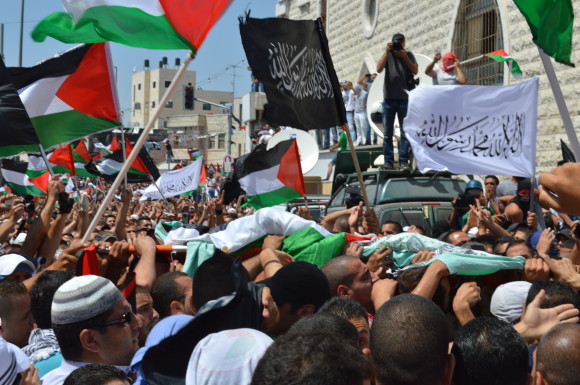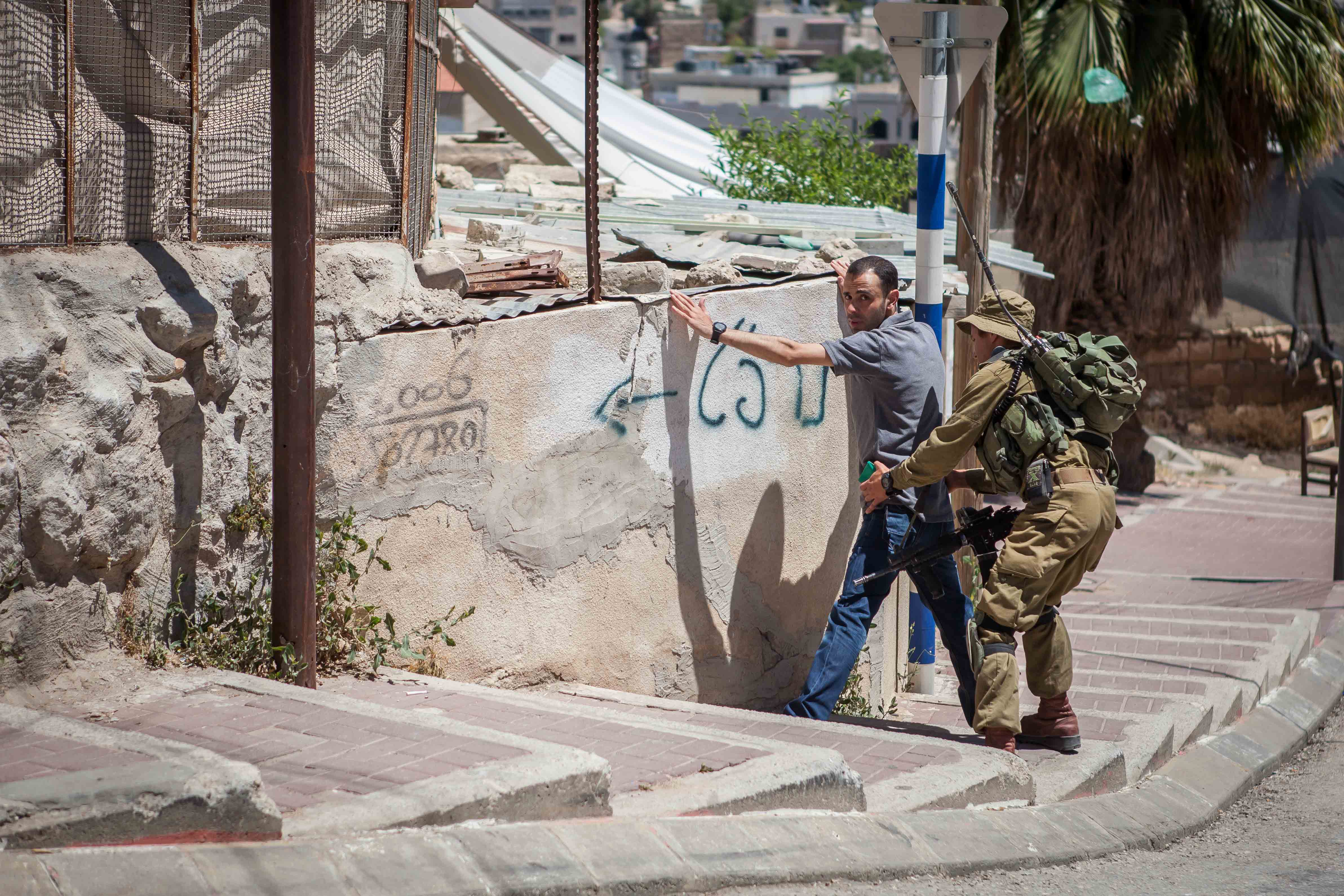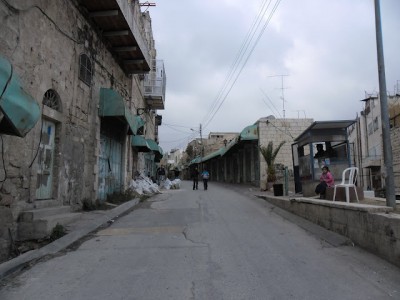Tag: Settler violence
-

Palestinians protest the murder of Mohammed Abu Khdeir and destroy apartheid tramway
6th July 2014 | International Solidarity Movement | Shu’afat, Occupied Palestine On the 04th July 2014, at least 2,000 Palestinian mourners gathered in Shu’afat for the funeral of Mohammed Abu Khdeir, who was kidnapped last week. His mutilated body was later found in a forest on the outskirts of Jerusalem. The autopsy indicates that he was burnt…
-

VIDEO: Israeli soldiers and settlers attack Palestinians and ISM volunteers in Hebron
2nd July 2014 | International Solidarity Movement, Khalil Team | Tel Rumeida, Occupied Palestine For the past two days in al-Khalil (Hebron) Israeli soldiers have stopped and searched many Palestinians in Tel Rumeida. At approximately 22:00 two nights ago, a colonial settler began aggressively photographing Palestinian children who were playing football in the street on Tel Rumeida hill. Two ISM activists began…
-

No Jews allowed
5th June 2014 | International Solidarity Movement | Hebron, Occupied Palestine My plan for the morning was pretty simple, I wanted to enter the souq (market) and buy some bread for breakfast, and then walk home. That was it. As I made my way towards the souq entrance I was stopped by two Israeli border police…
